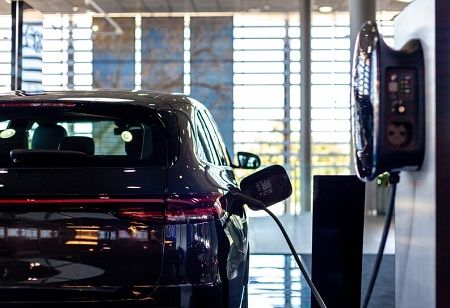
Trump's Tariffs: A Hidden Boon for India's EV Industry
The price of electric vehicles (EVs) is likely to increase because of the imposition of tariffs, something that can motivate companies to make a transition to local manufacturing. The leaders in the industry have noted that the tariffs may also present a chance for Indian auto component manufacturers to seek new markets overseas.
A 25 percent tax on foreign-produced cars, introduced by the Trump administration, went into effect on April 3, 2025. The same 25 percent tax on auto parts will be put into effect from May 3, although the sector is still waiting for word on which parts will fall under the new policy.
According to Pratik Kamdar, Co-Founder and CEO of Neurone Energy, “This situation could drive growth opportunities for Maharashtra’s EV sector. The increased costs may push companies to invest in local manufacturing, reducing dependency on imports and strengthening India's domestic EV industry.”
The imposition of tariffs on imported vehicles and components has been viewed as a significant opportunity for India to strengthen its automotive supply chain and position itself as a global hub for electric vehicles. Rohan Dewan, Co-Founder and CEO of LeafyBus (Delhi-based electric bus operator), stated, “With higher tariffs on Chinese auto components, India’s growing auto components industry could step in to fill the gap. This shift could boost exports and attract investments in local manufacturing. India can also capitalise on the opportunity by ramping up the production of EV components and batteries, aligning with government incentives like the Production Linked Incentive (PLI) scheme.”
It has been noted by Saurabh Agarwal, Partner & Automotive Tax Leader at EY India, that, “With US automotive tariffs rising, India's electric vehicle sector has a prime opportunity to capture a larger share of the US market, especially in the budget car segment. China's 2023 auto and component exports to the US stood at $17.99 billion, while India's were only $2.1 billion in 2024, highlighting the growth potential. To accelerate this, the government should enhance the PLI scheme by including more auto components, opening it to new players, and extending it by two years.”
Government subsidies have also been suggested as a means to counterbalance the impact of the tariffs, by lowering costs for both consumers and manufacturers. Kamdar noted, “Initiatives like the extension of the FAME scheme and the Production-Linked Incentive (PLI) program can play a crucial role in accelerating market growth. Additionally, incentives for local battery production and direct purchase subsidies can help stabilize demand and promote domestic manufacturing, strengthening India’s EV ecosystem.”



.jpg)